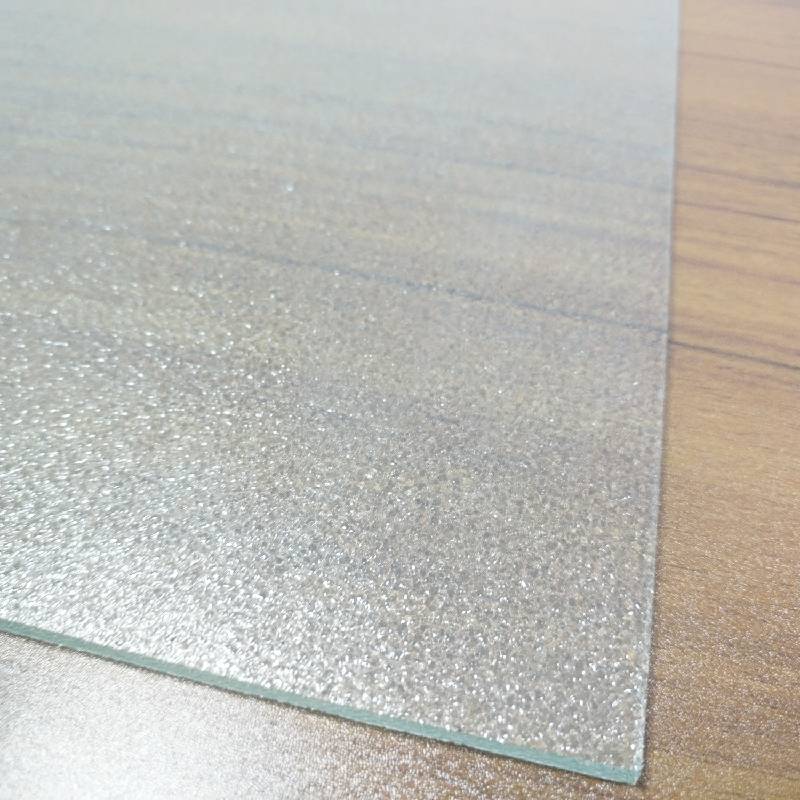Float glass manufacturing stands as a pillar of modern architectural advancements, revolutionizing the way we perceive glass in both commercial and residential spaces. Rooted in the seamless marriage of technology and engineering, the float glass process offers exceptional clarity and uniformity essential for contemporary design demands. Here's an in-depth exploration of the float glass manufacturing process—an intricate blend of sophisticated science and operational precision.

At the heart of float glass production is a finely-tuned series of steps, each crucial in creating a flat,
flawless glass sheet. The journey begins with raw materials, primarily silica sand, soda ash, limestone, and other additives, chosen meticulously for purity. This mix is subjected to intense heat, reaching temperatures over 1500°C in a furnace where it transforms into molten glass.
This molten glass is then carefully directed onto a bed of molten tin, which provides a perfectly smooth surface due to its non-reactive nature and ideal density. The glass floats effortlessly, spreading out evenly, a method that ingeniously harnesses the fundamental principles of physics. This continuous sheet flows over the metal bath, its top side exposed to air, while the bottom is meticulously shaped by the tin.

Controlled cooling is pivotal as the glass makes its way from the tin bath to the annealing lehr. This gradual cooling process imbues the glass with critical resilience, mitigating internal stresses that might lead to imperfections or fractures. The precise control during this phase guarantees that the glass retains structural integrity, enhancing its durability for eventual use in various applications.
float glass manufacturing process
A testament to expertise, today's float glass manufacturing has evolved to include state-of-the-art technologies like automated inspection systems, which scrutinize every millimeter of the glass for defects. These systems ensure that each pane meets stringent quality standards, a crucial aspect for industries where precision and reliability define success.
Environmentally, the float glass process is continuously refined to reduce its carbon footprint, integrating sustainable practices such as recycling waste glass during production. The use of advanced furnaces further reflects a commitment to energy efficiency, underscoring the industry's effort to minimize environmental impact.
Expertise in float glass production is further exemplified by the consistent innovation seen in product offerings—from energy-efficient low-emissivity glass to specialized coatings enhancing capabilities like thermal insulation and UV protection. Such advancements not only affirm the industry's authority but also build trust with consumers seeking superior and sustainable glass solutions.
Through experience and cutting-edge developments, the float glass manufacturing process stands as a bastion of modern engineering, embodying reliability, precision, and innovation. Its products, known for their elegance and practicality, continue to inspire architectural grandeur around the globe, reflecting the expertise and trustworthiness synonymous with this essential material.
 Afrikaans
Afrikaans  Albanian
Albanian  Amharic
Amharic  Arabic
Arabic  Armenian
Armenian  Azerbaijani
Azerbaijani  Basque
Basque  Belarusian
Belarusian  Bengali
Bengali  Bosnian
Bosnian  Bulgarian
Bulgarian  Catalan
Catalan  Cebuano
Cebuano  Corsican
Corsican  Croatian
Croatian  Czech
Czech  Danish
Danish  Dutch
Dutch  English
English  Esperanto
Esperanto  Estonian
Estonian  Finnish
Finnish  French
French  Frisian
Frisian  Galician
Galician  Georgian
Georgian  German
German  Greek
Greek  Gujarati
Gujarati  Haitian Creole
Haitian Creole  hausa
hausa  hawaiian
hawaiian  Hebrew
Hebrew  Hindi
Hindi  Miao
Miao  Hungarian
Hungarian  Icelandic
Icelandic  igbo
igbo  Indonesian
Indonesian  irish
irish  Italian
Italian  Japanese
Japanese  Javanese
Javanese  Kannada
Kannada  kazakh
kazakh  Khmer
Khmer  Rwandese
Rwandese  Korean
Korean  Kurdish
Kurdish  Kyrgyz
Kyrgyz  Lao
Lao  Latin
Latin  Latvian
Latvian  Lithuanian
Lithuanian  Luxembourgish
Luxembourgish  Macedonian
Macedonian  Malgashi
Malgashi  Malay
Malay  Malayalam
Malayalam  Maltese
Maltese  Maori
Maori  Marathi
Marathi  Mongolian
Mongolian  Myanmar
Myanmar  Nepali
Nepali  Norwegian
Norwegian  Norwegian
Norwegian  Occitan
Occitan  Pashto
Pashto  Persian
Persian  Polish
Polish  Portuguese
Portuguese  Punjabi
Punjabi  Romanian
Romanian  Russian
Russian  Samoan
Samoan  Scottish Gaelic
Scottish Gaelic  Serbian
Serbian  Sesotho
Sesotho  Shona
Shona  Sindhi
Sindhi  Sinhala
Sinhala  Slovak
Slovak  Slovenian
Slovenian  Somali
Somali  Spanish
Spanish  Sundanese
Sundanese  Swahili
Swahili  Swedish
Swedish  Tagalog
Tagalog  Tajik
Tajik  Tamil
Tamil  Tatar
Tatar  Telugu
Telugu  Thai
Thai  Turkish
Turkish  Turkmen
Turkmen  Ukrainian
Ukrainian  Urdu
Urdu  Uighur
Uighur  Uzbek
Uzbek  Vietnamese
Vietnamese  Welsh
Welsh  Bantu
Bantu  Yiddish
Yiddish  Yoruba
Yoruba  Zulu
Zulu 


